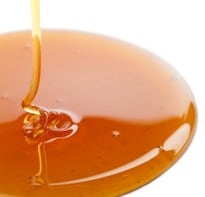Fructose, which is naturally found in fruit, vegetables and honey, is not responsible for non-alcoholic fatty liver disease, says a promising research. The consumption of fructose, which is also found in sucrose and high-fructose corn syrup - the two most common sweeteners in commercially prepared foods - has been frequently debated for its link with non-alcoholic fatty liver disease.
Advertisement
Advertisement
For the latest food news, health tips and recipes, like us on Facebook or follow us on Twitter and YouTube.
Advertisement
